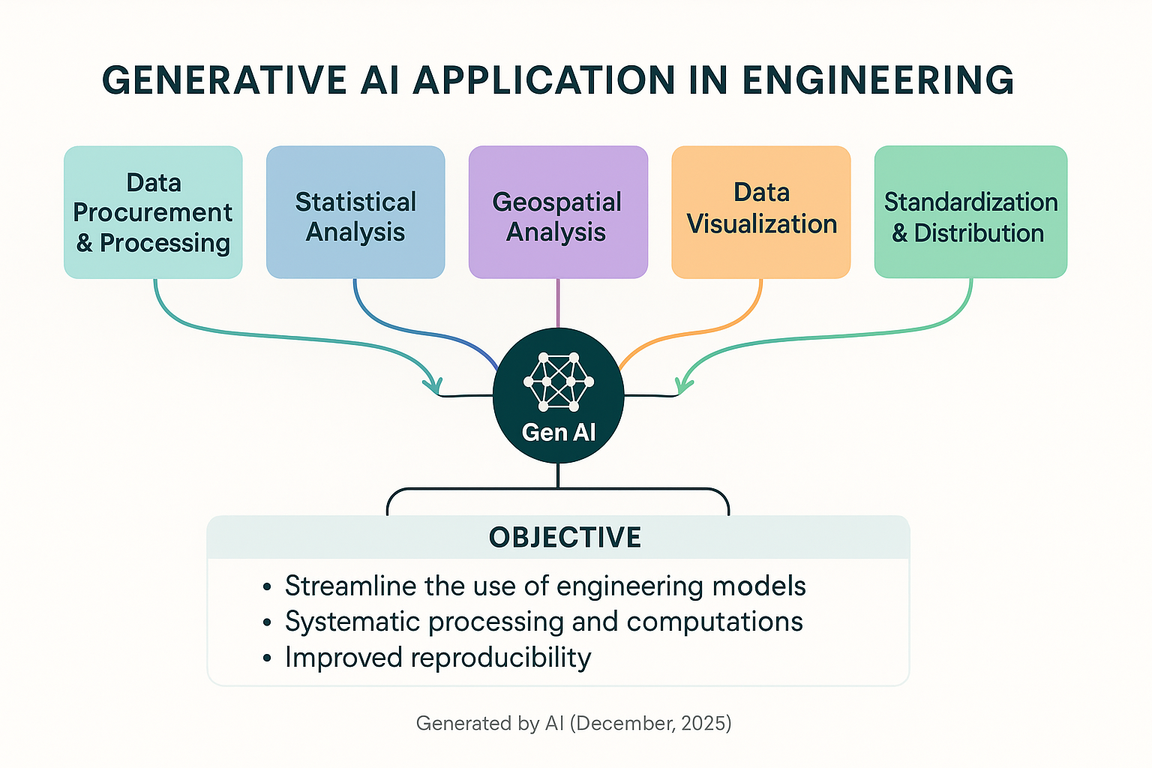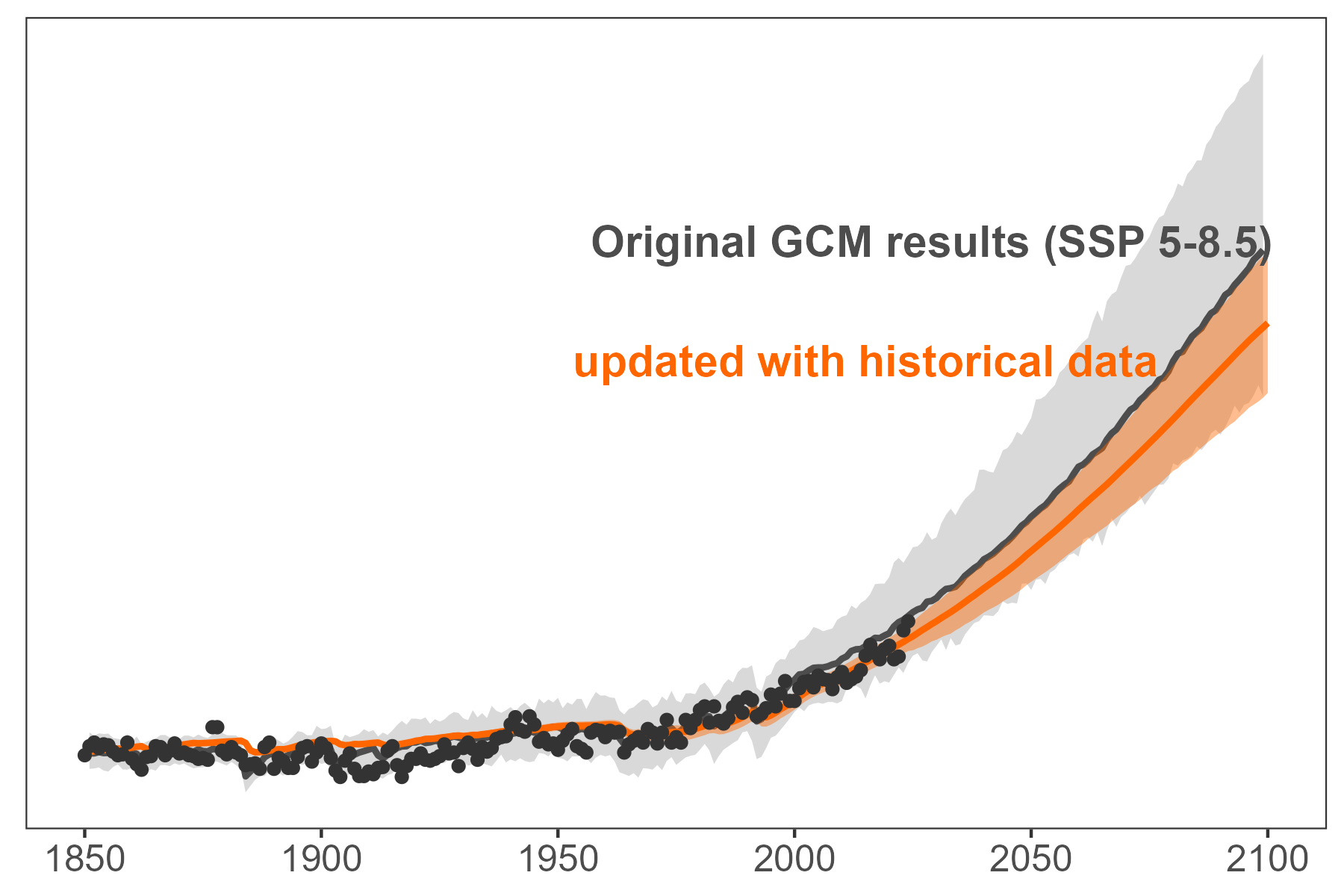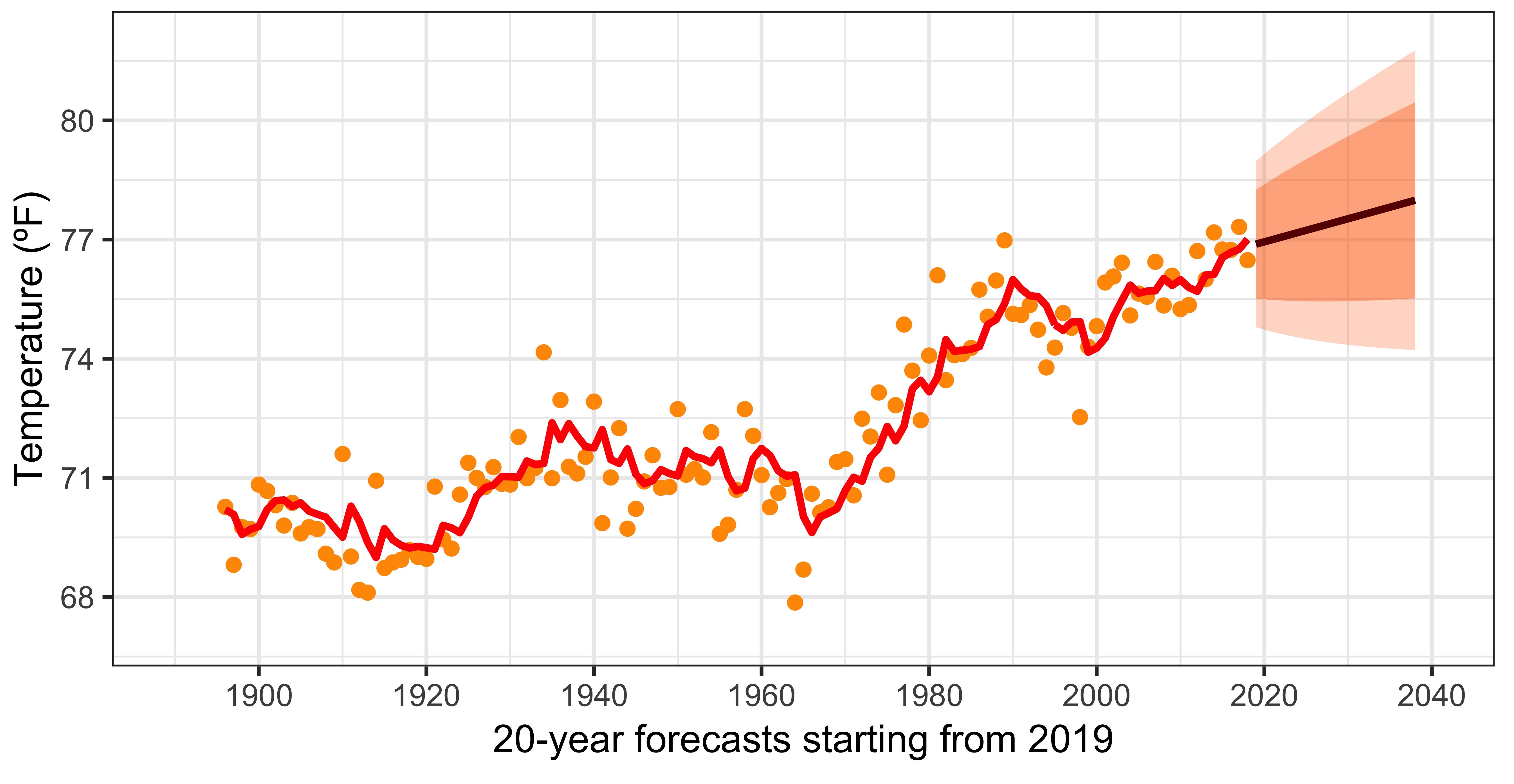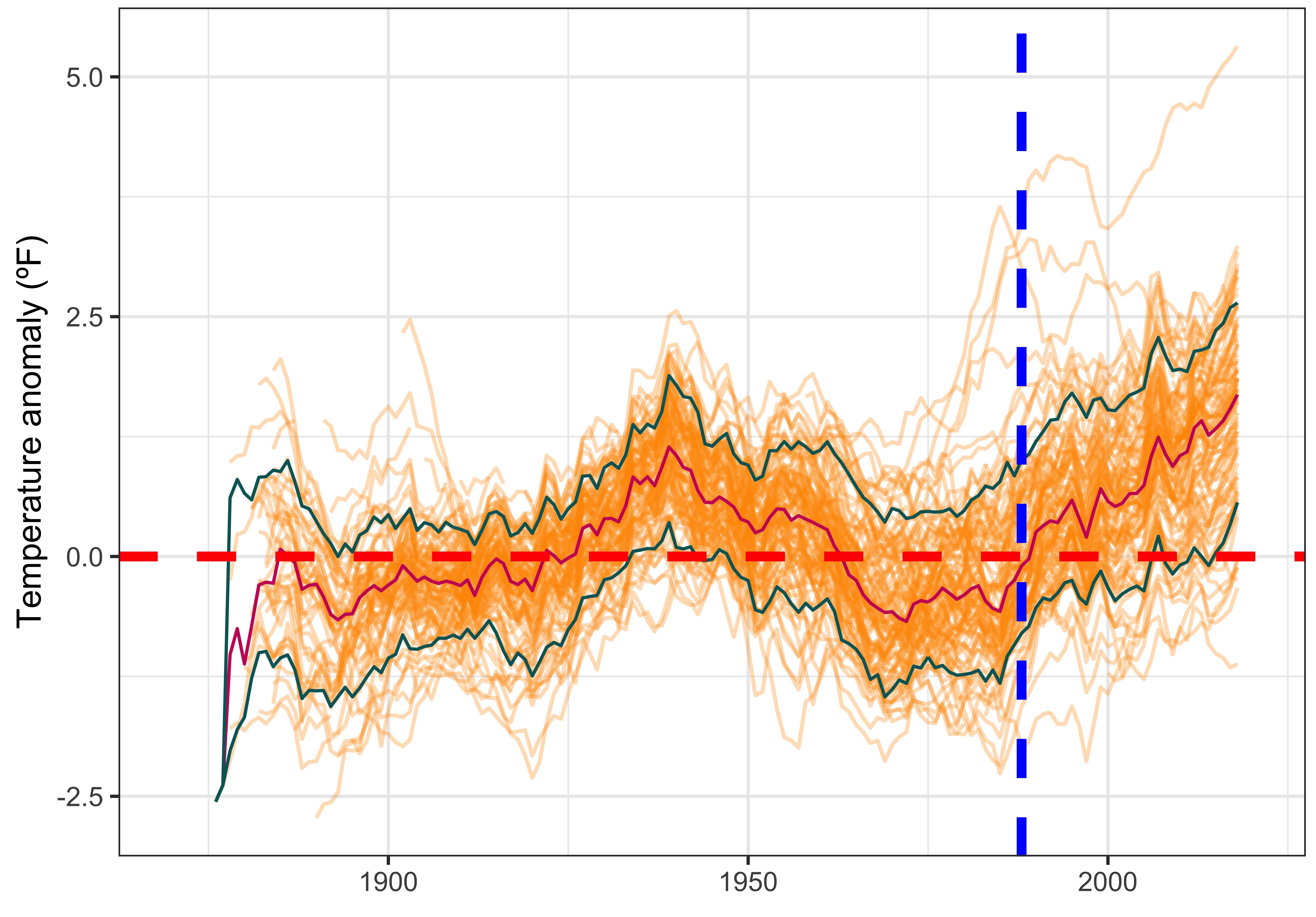I am a research engineer at Tetra Tech
Some of the key projects I have worked on:
- Extending and analyzing historical runoff records in California’s Central Valley
- Performing long-term climate-change and hydrologic analyses of the Colorado River Basin
- Assessing and projecting the effects of temperature increases on drinking-water quality in distribution systems
- Developing statistical models and forecasts of local climate data for engineering design
I hold a PhD in Civil and Environmental Engineering from Carnegie Mellon and am a licensed civil engineer. In 2026, I was honored to be selected for the American Academy of Environmental Engineers and Scientists’ 40 Under 40 Recognition Program.

Generative AI Applications
I've been using generative AI (ChatGPT, Gemini, etc.) to streamline many aspects of engineering analysis. This technological advance in my mind will significantly boost productivity and reshape the future of engineering.


Updating Climate Projections with Historical Data
I developed a statistical learning framework to leverage climate change simulated by processed climate models and to efficiently update future projections based on historical data.
Forecasting Future
I built a statistical, ARIMA-based model that forecasts a city’s temperature and precipitation. The model was then combined with the results of global climate models to project longer-term changes.


Historical Climate Change
I compiled and analyzed long-term, location-specific temperature and precipitation records (dating back to the 1870s) for more than 100 U.S. cities and studied various indices to understand their implications for engineering designs.
Climate Change Effects on Water Quality
I used climate forecasts and projections to evaluate how climate change could affect different engineering sectors, such as drinking water quality in distribution systems.
